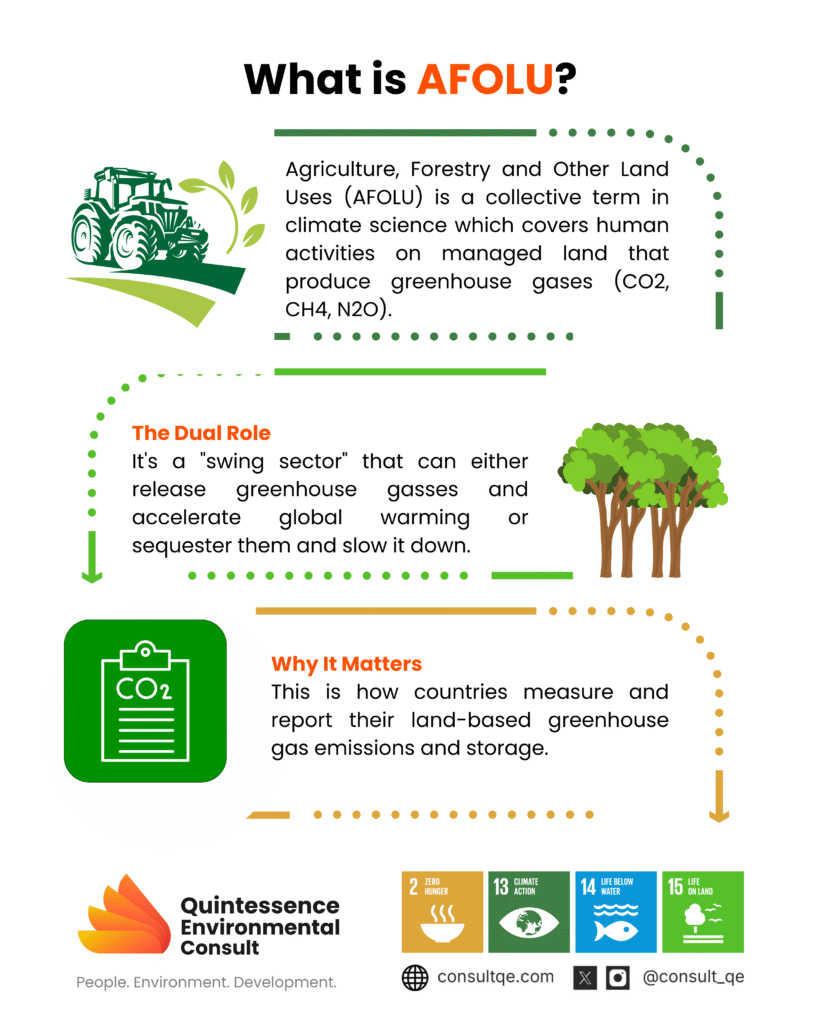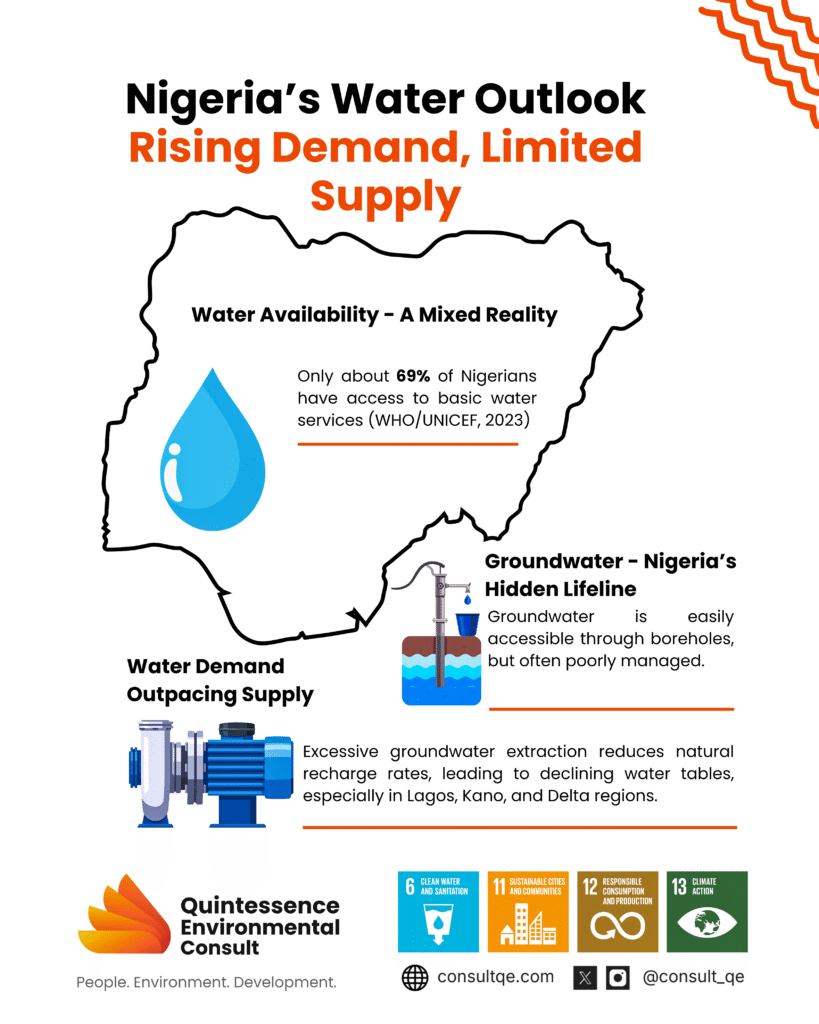Cultivating Change: Nigeria’s AFOLU Sector as a Cornerstone of Climate Action

The Agriculture, Forestry, and Other Land Use (AFOLU) is a collective term that categorises human activities influencing the movement of greenhouse gases, such as carbon dioxide (CO2), methane (CH4), and nitrous oxide (N2O), between the Earth’s surfaces and the atmosphere. Each time we choose to plant, to build, or which forest or wetland to protect, we’re shaping a global climate equation. This influence ranges from farming and livestock to forestry and the conversion or management of croplands, grasslands, savannas, wetlands, and settlements.
What makes AFOLU both compelling and consequential is its dual role. AFOLU “behaves like a swing”; meaning that, depending on how land is managed within the Agriculture, Forestry, and Other Land Use sector, it can either be a significant source of greenhouse gas emissions (by degrading ecosystems like deforestation) or a carbon sink (by actively planting trees and managing land sustainably), thereby impacting the rate of global warming. The Intergovernmental Panel on Climate Change (IPCC) assessments (2022) show that land use contributes roughly a fifth of total human greenhouse gas emissions.
Yet, the land surface, through forests and soils, also absorbs a significant share of human-generated CO2 (Carbon dioxide) through a process called carbon sequestration, acting as a natural carbon sink . This global swing is not abstract; its fingerprints are visible in everyday Nigeria’s day-to-day land choices.
Protecting Nigeria’s Groundwater: Combating Over-Abstraction And Improving Drilling Practices

Did you know that Nigeria’s groundwater resources in urban settings are under severe pressure, with some areas experiencing alarming drops in the water table? Over-abstraction of groundwater undermines the sustainability of this vital water source that supplies most of our drinking water.
